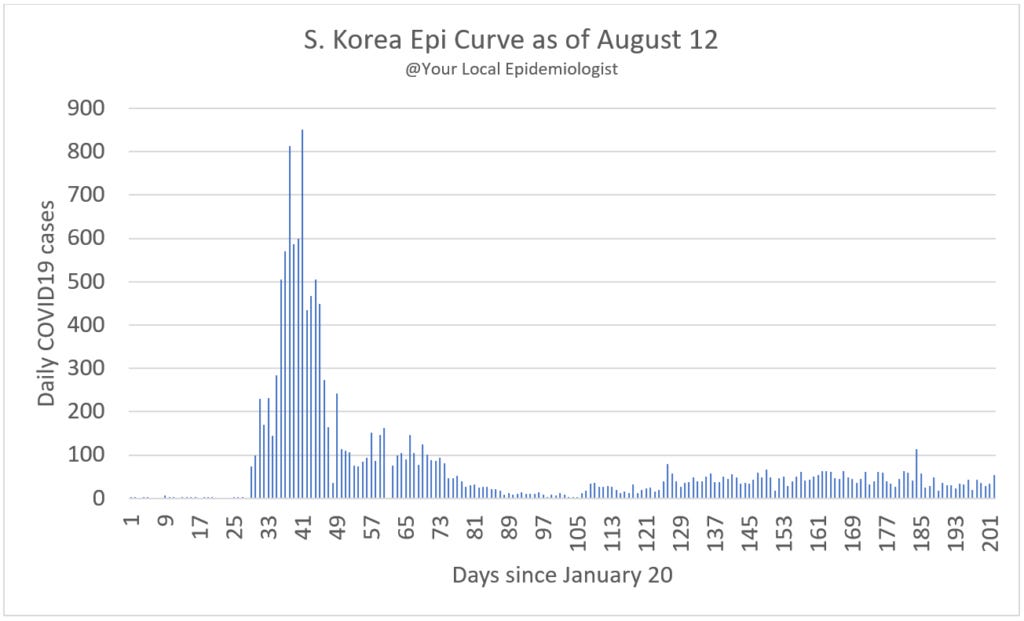S. Korea: Another COVID19 success story
S. Korea flattened their curve QUICKLY. Since Jan 20, they’ve had 14,714 cases (28 cases per 100,000) and 305 deaths (6 per 1 million).
This success was due to their flawed 2015 MERS response. After MERS, they made several changes to their health system, insurance system, and strengthened relationships between public and private agencies. This foundation allowed them to respond quickly to COVID19.
S. Korea had a much different approach to New Zealand (see previous post). S. Korea didn’t close businesses, didn’t issue stay at home orders, and didn’t close their borders. They focused on three other proactive public health interventions within DAYS of their first case:
1. Testing and Screening. Opened 600 testing centers with the capacity to reach 15,000-20,000 per day (39 per 100,000). Screened for COVID19 at the front doors of businesses.
2. Treatment. Recruited 2,400 health professionals to the large urban areas. Increased hospital capacity quickly by building temporary hospitals.
3. Containment. Isolated cases and contact traced. The most comprehensive contact tracing program in the world through the development of an IT system aggregating a wide range of both medical and nonmedical data.
While this has been a great public health success, the unusual thoroughness of their contact tracing has been questioned. Three S. Korea law professors described this in a JAMA article.
Briefly, once someone was COVID19 positive, their deidentified information (sex, nationality, age) was made public. However, some regional governments went further to provide information on the infected person’s route, including the name of the restaurants, shops, and other businesses. This allowed for the unveiling of cases, embarrassing personal details, and public distain (sometimes even in the media).
S. Korea’s National Human Rights Commission called to limit governments’ ability to publish this information. They were successful on March 9 for future COVID19 cases.
Nonetheless, the authors concluded “It is critical to balance the need for information to test, track, and quarantine with legitimate privacy concerns….Further refinements are needed to better protect the privacy of infected individuals while not sacrificing the effectiveness of the measures taken”.
Love, your local epidemiologist
PS There are some great testimonials from S. Koreans within the comments on the Facebook post
Source: Data from Johns Hopkins, first figure by me.





